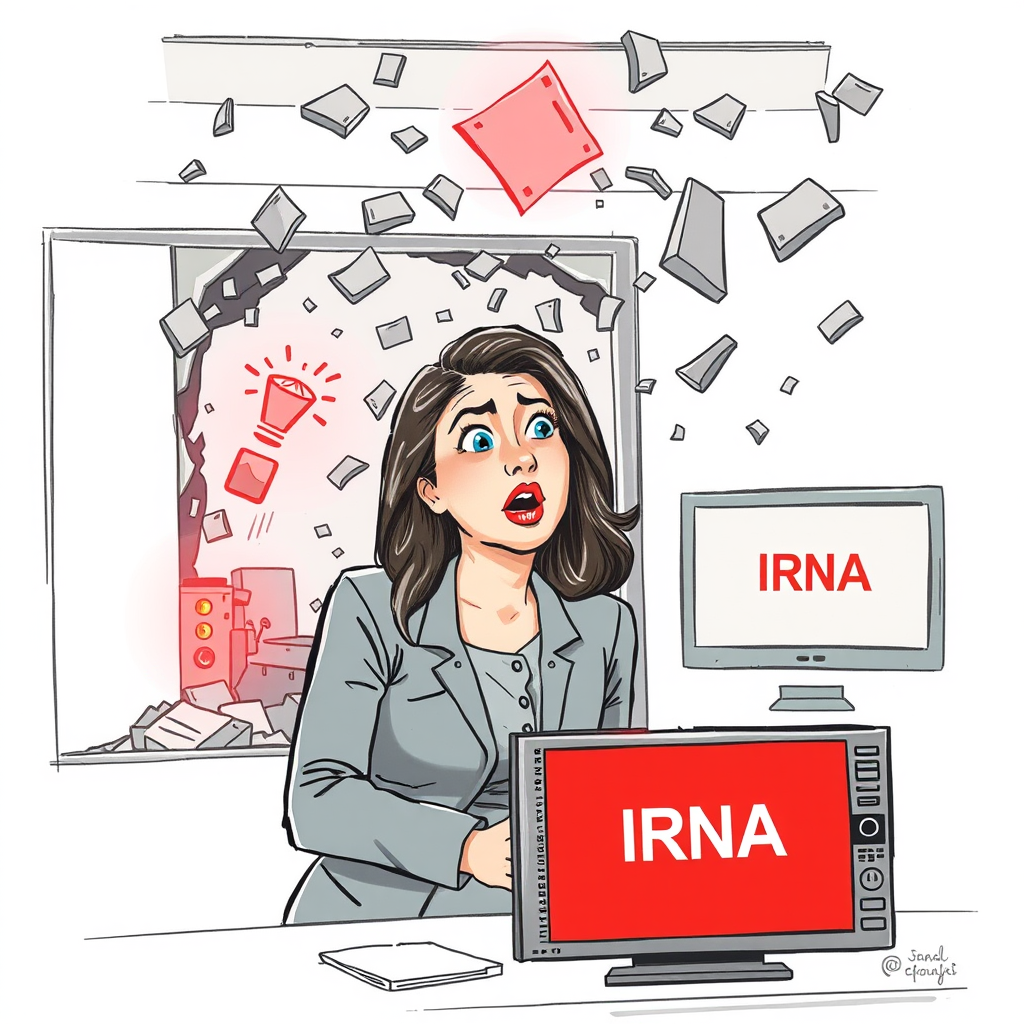Israel Strikes Iran TV During Live Broadcast

Israel launched a direct strike Monday on the headquarters of Iran’s state news agency, IRNA, disrupting a live broadcast and sending debris into the studio. The attack, targeting a key component of Iranian state media, represents a significant escalation in the ongoing conflict between the two nations.
Defense Minister Israel Katz stated the strike targeted “the Iranian regime’s propaganda and incitement broadcasting authority,” adding a defiant pledge to “defeat the Iranian dictator everywhere.” Footage from the live broadcast showed anchor Sahar Emami continuing her report as a loud explosion reverberated through the studio. She described the sound as “aggression against the homeland,” before the screen cut to black and she evacuated the set.
The IRIB Organization building in Tehran’s District 3, which houses IRNA’s headquarters, had received an evacuation notice from the Israel Defense Forces hours prior to the strike. A senior official at the state broadcaster responded by asserting that Israel’s actions would not silence “the voice of the Islamic revolution and the great Iran.”
This bombing marks the fourth day of intensified conflict following Iranian missile strikes earlier Monday that killed at least eight people in Israel, bringing the country’s death toll to at least 24. Iranian officials report at least 224 fatalities within Iran since hostilities began.
Israeli military officials claim to have achieved “full aerial control above Tehran” and destroyed approximately one-third of Iran’s surface-to-surface missile launchers. Iranian state media, in turn, announced preparations for “the largest and most intense missile attack in history on Israeli soil.”
The situation is rapidly deteriorating, and the potential for wider regional instability is extremely high. While Israel frames its actions as a response to Iranian aggression and a necessary measure to dismantle what it perceives as a threat, the direct targeting of media infrastructure raises serious concerns about freedom of the press and the potential for civilian casualties. The escalation also appears to be a calculated risk, potentially aiming to cripple Iran’s ability to disseminate information and influence public opinion, both domestically and internationally.
At the G7 summit in Canada, U.S. President Donald Trump urged Iran to engage in dialogue, stating, “Iran is not winning this war, and they should talk, and they should talk immediately before it’s too late.” However, with both sides seemingly entrenched in their positions and escalating rhetoric, the prospect of a peaceful resolution appears increasingly distant. The international community must prioritize de-escalation and diplomatic efforts to prevent a further spiraling of violence with potentially catastrophic consequences.